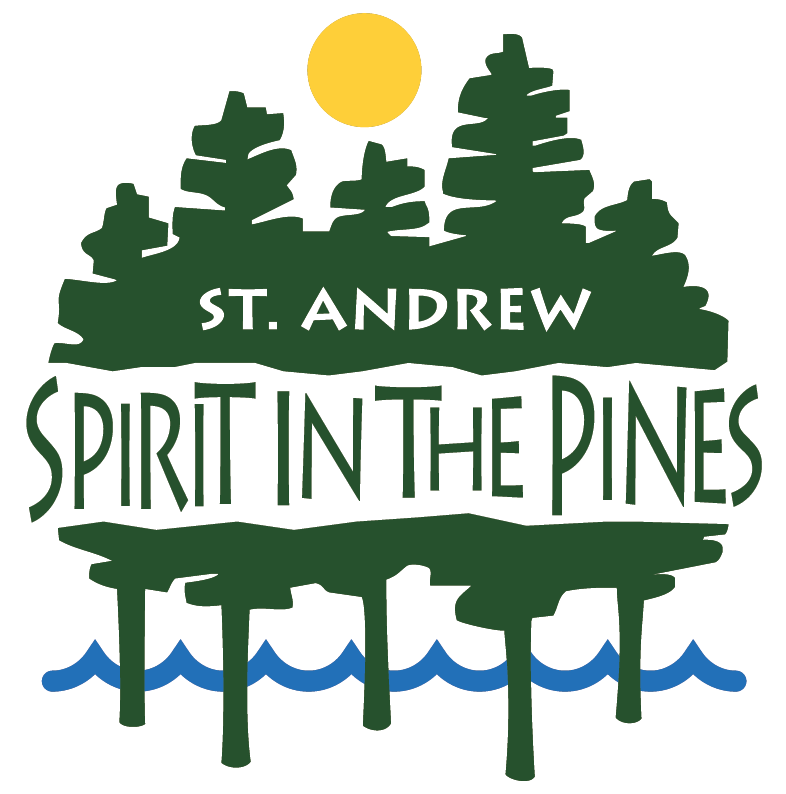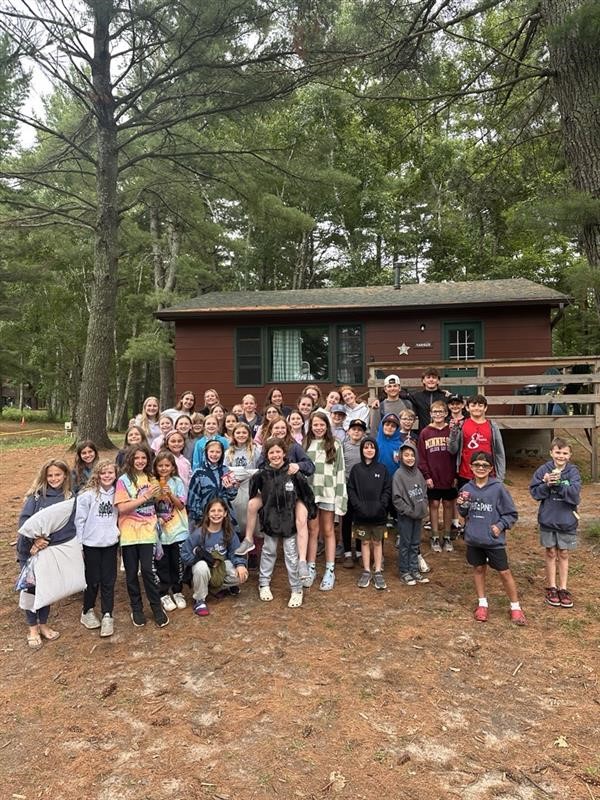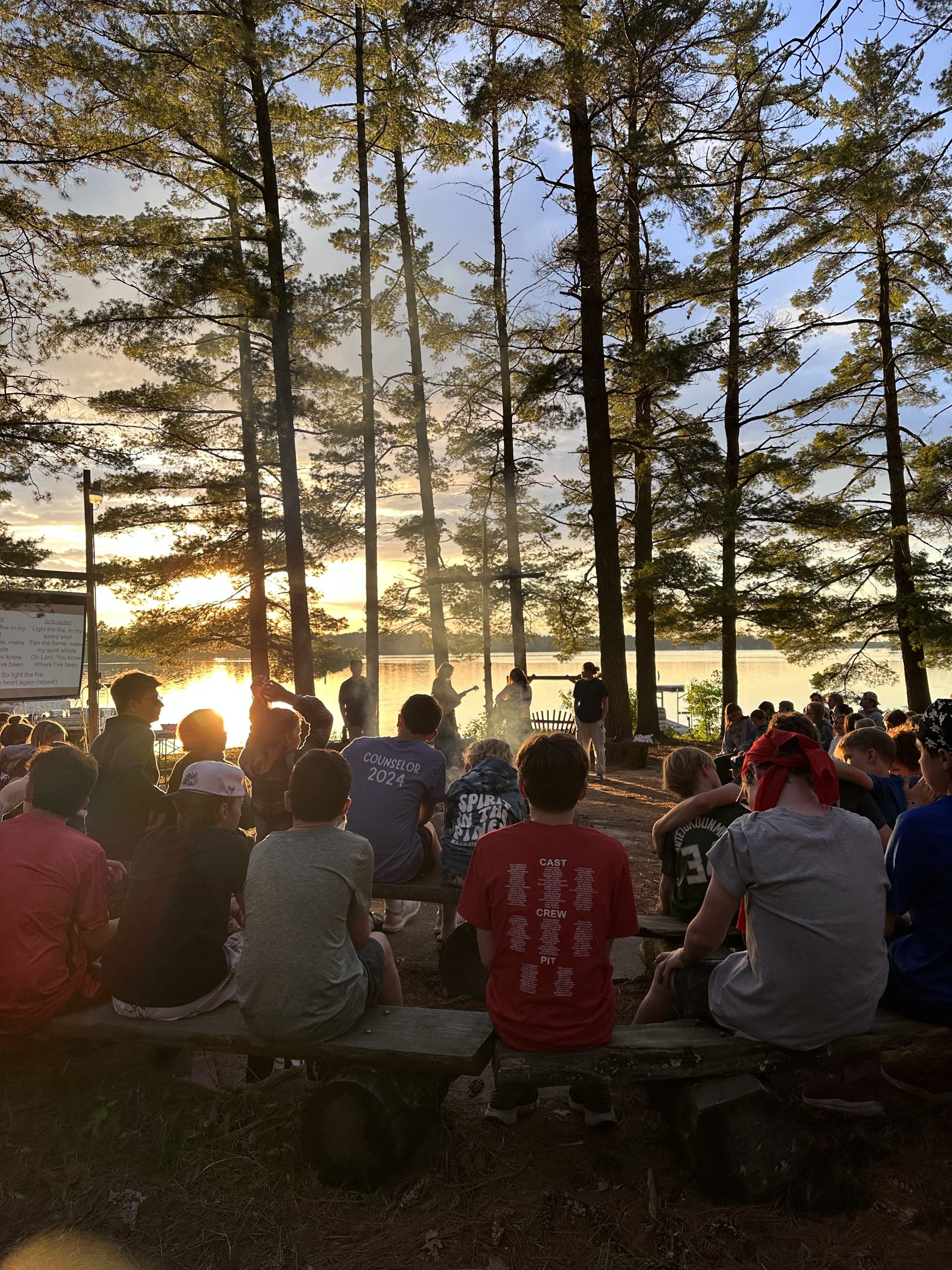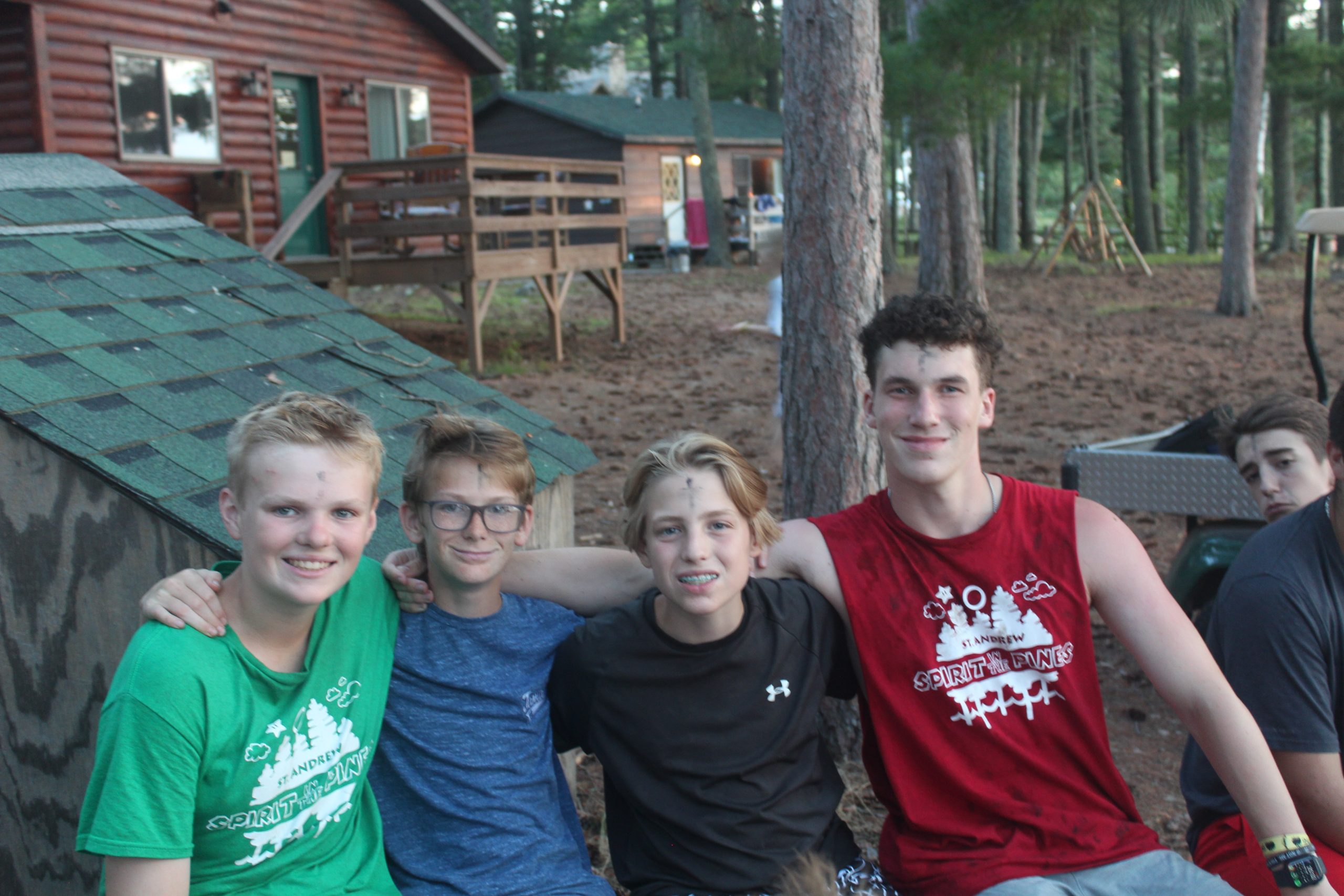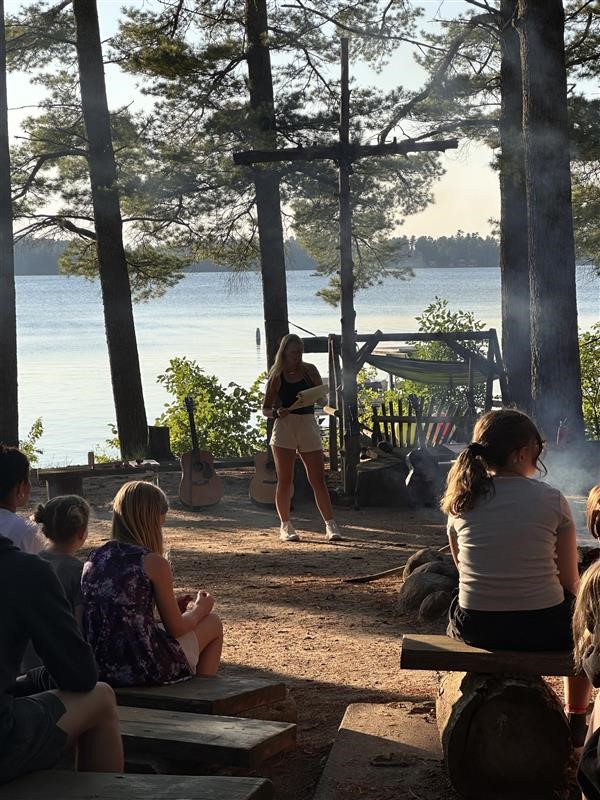Campfire Talk by Akos
July 15, 2025
Good evening everyone. My name is Akos, this is my second year on staff, and I’m part of the Fun Squad. You’ve probably heard it mentioned once or twice this week, but our theme for the summer is Rooted and Grounded Around the Campfire. When I first heard the theme, I wasn’t quite sure what to make of it. I asked myself questions like:
- What does being rooted and grounded even mean for me?
- How are we supposed to teach this to campers?
- Is this too complex?
But the more I thought about it, the simpler it became. When you walk through a forest, or a garden, or even just past some weeds in the fields of life, it’s easy to notice how different the plants look. Some have flowers. Others have thorns. Some have big, broad leaves, others tiny ones. From the surface, it’s easy to identify them, categorize them, and maybe even judge them.
People really aren’t that different. We notice each other’s surface-level traits — what we’re good at, how we act, how we look. We start to describe people by those things:
- That’s the smart one.
- That’s the athletic one.
- That’s the jokester.
But just like plants, people are so much more than what’s on the surface. What really gives a plant its strength — its nourishment, its ability to grow and survive storms — are its roots.
Roots are the part of every tree or plant that grow deep underground, unseen. Some roots grow wide and shallow, like desert plants that spread out to catch every drop of rain. Some, like aspen trees, connect underground with others. In fact, there’s an aspen grove in Utah called Pando that covers over 100 acres, but technically, it’s all one tree — one connected root system beneath the surface. Prairie grasses have roots that grow 15 feet deep, which lets them survive fires and drought and regrow stronger.
People are the same way. What holds me up might look different from what holds you up. For some people, it’s family and friends. For others, it’s sports, music, art, or education. Even the parts of our stories that are hard — things like trauma, doubt, insecurity, shame, failure — they shape our roots too.
And here’s something important: Roots can die.
A drought, a harsh season, or some damage can cause parts of a plant’s roots to wither. What held you up before might not work anymore. Maybe you move, maybe you lose people, maybe things change.
But here’s something else important: Roots can regrow.
Plants find new ways to reach for water. They heal. They adapt. New roots form in new places. And so can we.
Even when we feel shaken, even when we feel pulled up or disconnected — it’s never too late to grow new roots.
So what do trees and plants have to do with being rooted and grounded around the campfire?
Just like the plants, we all bring our own stories, our own roots, here to camp. Understanding that each of us is rooted and grounded in different ways is how we build a community that holds each other up and helps us grow.
1 Samuel 16:7 says, “The Lord does not look at the things people look at. People look at the outward appearance, but the Lord looks at the heart.”
Reflect on your roots. Ground yourself here, together at camp, together around this campfire. This camp community will help hold you up.
